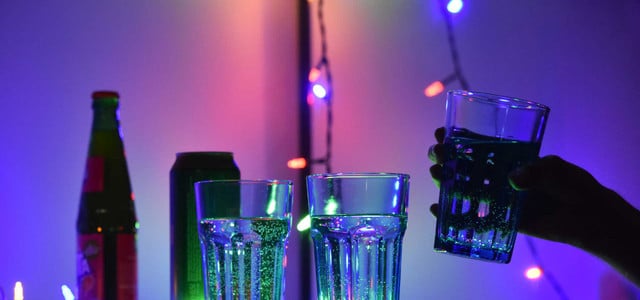
Weekends should be pure relaxation – but irregular sleep times and alcohol can increase an underestimated form of night breathing interruptions. There is now also a technical term for this: social apnea.
Sometimes stay up, maybe a glass of wine or beer more and more well sleep in on Saturdays or on Sundays: for many, this is simply part of the weekend. But it was precisely this rhythm of life that could have been underestimated. An international research team from Flinders University in Australia warns of a newly identified form of sleep disorder – “Social Apnea”, the social sleep apnea.
A study with data from more than 70,000 people worldwide shows: The breathing interruptions, which are typical of the so -called obstructive sleep apnea (OSA), occur significantly more frequently at the weekend than during the week. Late bed times, alcohol enjoyment and irregular sleep patterns in particular drive the risk. The results have now been published in the journal “American Journal of Respiratory and Critical Care Medicine”.
Social apnea: What happens?
In the case of an obstructive sleep apnea (OSA), the airways are repeated during sleep, causing sleep to interrupt. This can lead to fatigue, concentration problems, but also serious health consequences during the day.
The disorder increases the risk of heart diseases, diabetes, depression, dementia and traffic accidents. In the worst case, sudden cardiac death threatens. Sleep apnea is considered a widespread but often undetected common disease. An estimated one billion people are affected worldwide.
“Sleepapnea is already a big problem for public health, but our results suggest that your true extent has been underestimated so far,” said main author Lucia Pinilla from the FHMRI SLEEP Health research center. “Most clinical diagnostic tests are carried out on one evening, usually on a weekday, which means that the weekend effect, which we now call the ‘social apnea’, is not taken into account.”
Men affected more than women
The direct comparison of tests on a Saturday and a Wednesday brought a clear finding: At the weekend, the risk of a moderate to severe sleep apnea was 18 percent higher. Those who treated themselves to 45 minutes or longer to sleep on Saturdays increased the risk by 47 percent.
Men are affected by 21 percent more often than women (9 percent). Under 60-year-olds suffered more often from the increased breathing disorder 24 percent more often, with the over 60 year olds only 7 percent.
“We still don’t know exactly why-but alcohol, easier sleep and less consistent use of sleep apnea therapies should play a role,” said co-author Danny Eckert. What is certain is that sleep studies in a single night a week were not sufficient to clearly determine the OSA heavy degree in one person.
What helps against social apnea?
At the same time, the researchers point out that their study has limits: The participants voluntarily bought the sleeping sensor inside – they were probably more health -conscious than the average. Men were overrepresented and important data on lifestyle factors such as alcohol, sports, caffeine consumption or smoking were missing.
In order to avoid the “social apnea”, the experts recommend: inside a fixed sleep – even on weekends. “Try to get up every day at the same time, go to bed when you are tired and consistently keep your prescribed OSA therapy,” advises Eckert. Seven to nine hours of relaxing sleep per night are ideal.
Read more on utopia.de:
** marked with ** or orange underlined Links to sources of supply are partially partner links: If you buy here, you will actively support Techzle\.com, because we will then receive a small part of the sales proceeds. More information.